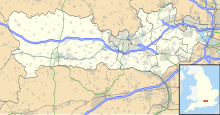| Site of Special Scientific Interest | |
 | |
| Location | Berkshire |
|---|---|
| Grid reference | SU 369 639 [1] |
| Coordinates | 51°22′23″N1°28′16″W / 51.373°N 1.471°W |
| Interest | Biological |
| Area | 3.1 hectares (7.7 acres) [1] |
| Notification | 1986 [1] |
| Location map | Magic Map |
Inkpen Crocus Fields is a 3.1-hectare (7.7-acre) biological Site of Special Scientific Interest near Inkpen in Berkshire. [1] [2] It is managed by the Berkshire, Buckinghamshire and Oxfordshire Wildlife Trust. [3]
